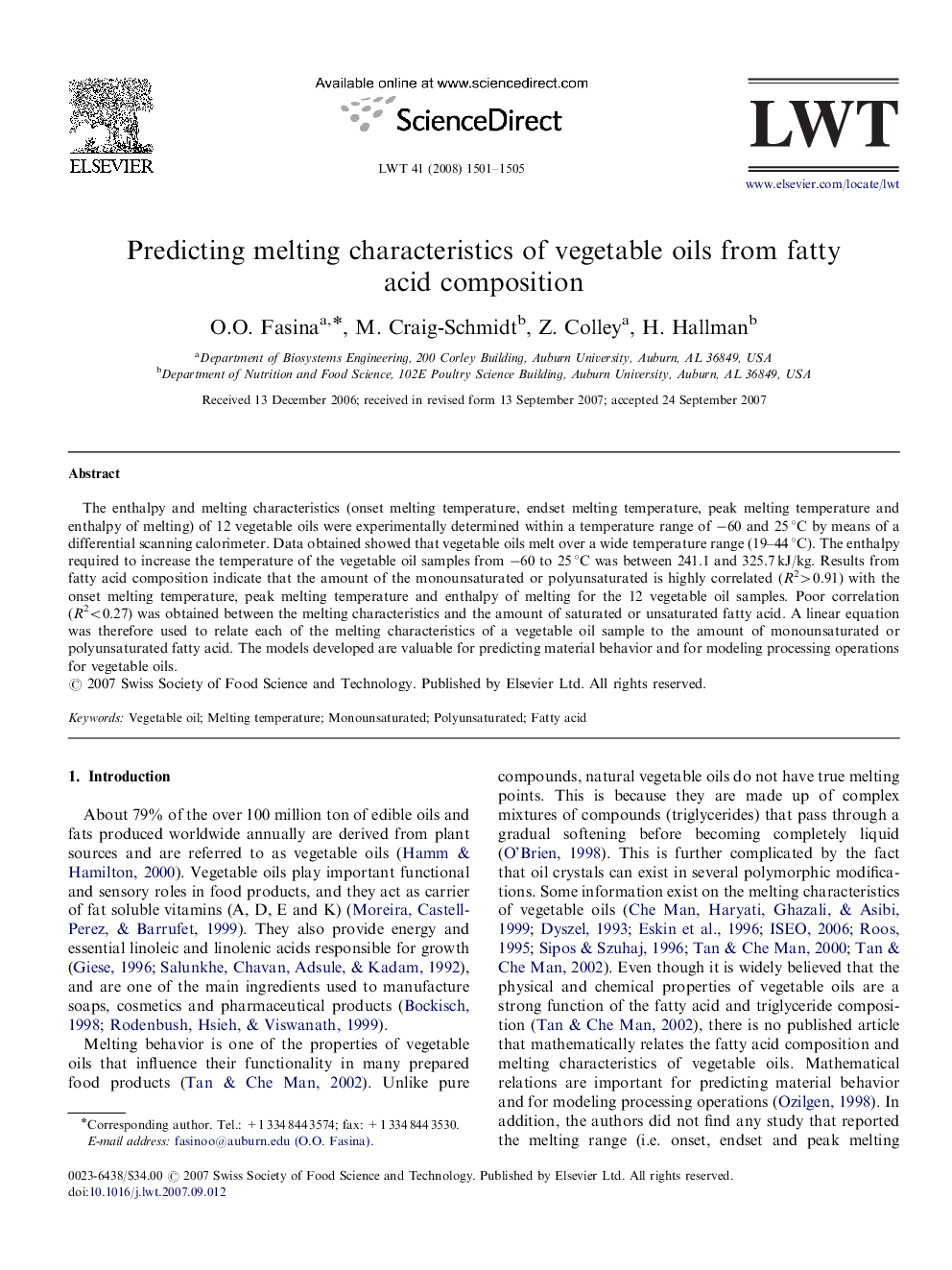| Article ID | Journal | Published Year | Pages | File Type |
|---|---|---|---|---|
| 4564870 | LWT - Food Science and Technology | 2008 | 5 Pages |
The enthalpy and melting characteristics (onset melting temperature, endset melting temperature, peak melting temperature and enthalpy of melting) of 12 vegetable oils were experimentally determined within a temperature range of −60 and 25 °C by means of a differential scanning calorimeter. Data obtained showed that vegetable oils melt over a wide temperature range (19–44 °C). The enthalpy required to increase the temperature of the vegetable oil samples from −60 to 25 °C was between 241.1 and 325.7 kJ/kg. Results from fatty acid composition indicate that the amount of the monounsaturated or polyunsaturated is highly correlated (R2>0.91) with the onset melting temperature, peak melting temperature and enthalpy of melting for the 12 vegetable oil samples. Poor correlation (R2<0.27) was obtained between the melting characteristics and the amount of saturated or unsaturated fatty acid. A linear equation was therefore used to relate each of the melting characteristics of a vegetable oil sample to the amount of monounsaturated or polyunsaturated fatty acid. The models developed are valuable for predicting material behavior and for modeling processing operations for vegetable oils.
